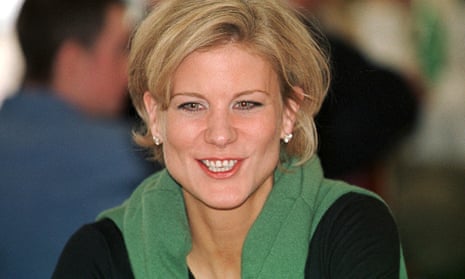It is June 2008 and the start of the financial crisis. Everyone in the City of London is firefighting, but two bankers are wrestling with an especially thorny problem.
They are within touching distance of saving their bank from oblivion, yet a single sticking point remains: how do they accept the rescue deal on offer from the Gulf state of Qatar, while simultaneously keeping themselves out of prison?
This issue was sufficiently live in the minds of Thomas Kalaris and Richard Boath – then two of the most senior executives at Barclays – for the pair to engage in gallows humour about the prospect.
In a now infamous telephone exchange between them, Kalaris said: “None of us want to go to jail here … [because] the food sucks and the sex is worse.”
Twelve years later and that quandary has essentially proved the trigger for one of the larger legal claims in recent City memory, which opened at the high court last week.
Amanda Staveley, the high-profile businesswoman who has just brokered the potential takeover of the Premier League football club Newcastle United, is suing Barclays for up to £1.5bn after her client, Sheikh Mansour bin Zayed Al Nahyan of Abu Dhabi, invested £3.25bn as part of a subsequent emergency fundraising during 2008.
Before Staveley had even arrived on the Barclays scene, the problem facing Kalaris and Boath was that the potential Qatari investors were demanding the bank pay them millions of pounds in fees in order to invest, court documents allege. But Barclays’ commercial lawyers insisted that these fees could not be a pure inducement. They had to be paid in return for commercial value.
The solution was a deal that essentially meant that the Qataris would earn their fees by making introductions and giving advice. After weeks of negotiation, an agreement was struck and Barclays was saved – at least for a few months.
At that very moment, Staveley had just started building what was to become – at least in the public’s perception – a formidable reputation as a financial fixer who had the mobile phone numbers of Emiratis on speed dial.
Her business career had started by acquiring a restaurant near Newmarket, where she got to know some of the fabulously wealthy Gulf racing set, and by September 2008 the then 35-year-old had just advised on the sale of Manchester City by Thaksin Shinawatra, the former prime minister of Thailand. The buyer was an old contact of hers from a stint working in finance in the Middle East: Sheikh Mansour.
That month the Wall Street investment bank Lehman Brothers collapsed, triggering the next stage in the credit crunch. Barclays was again in the position of needing to raise billions to keep it from being nationalised.
Staveley and Mansour were interested in investing. The Qataris were too, only this time they were demanding more than £300m in fees.
On 23 October Staveley met Barclays’ then chairman of investment banking, Roger Jenkins, at his home on Farm Street in Mayfair, London. No sooner had the meeting finished, he rushed around the corner to meet Qatar’s Sheikh Hamad at the Dorchester hotel in what became a frantic dash to raise the funds.
By November a deal was done. Only then, everybody fell out.
According to Staveley’s evidence, when she met Jenkins at his home in October he had promised her and Abu Dhabi the “same deal” as the Qataris for an investment in Barclays. And yet, Staveley claims, unbeknown to her the Qataris were also being paid hundreds of millions of pounds in fees.
Staveley alleges in court documents that in order to secure the rescue finance, Barclays agreed to Qatari demands to be paid an additional “sham” advisory fee of £280m; a “yet further fee of £66m”; and “an entirely unsecured loan” of £2bn – “almost exactly the same sum as that for which they were offering” to invest. The phone calls and transcripts of the bankers joking about going to prison are proof they were trying to disguise these payments, she claims.
Staveley’s case is that she sacrificed the chance of future lucrative financial derivatives that were part of her original deal, in order to agree to what she thought was the same deal as the Qataris. This later caused her to be sidelined as an investor by Abu Dhabi, and meant she has only been able to collect £30m in gross advisory fees.
Lawyers representing Barclays have described the damages claim as “opportunistic and speculative” and, as she entered the witness box this week, suggested Staveley had exaggerated the level of her contacts in the Gulf and the importance of her role in the Barclays deal.
Barclays argues the fees paid to Qatar were genuine commercial arrangements, while a criminal case centring on these “sham” fee allegations resulted in Jenkins, Boath and Kalaris all being cleared of fraud in February.
